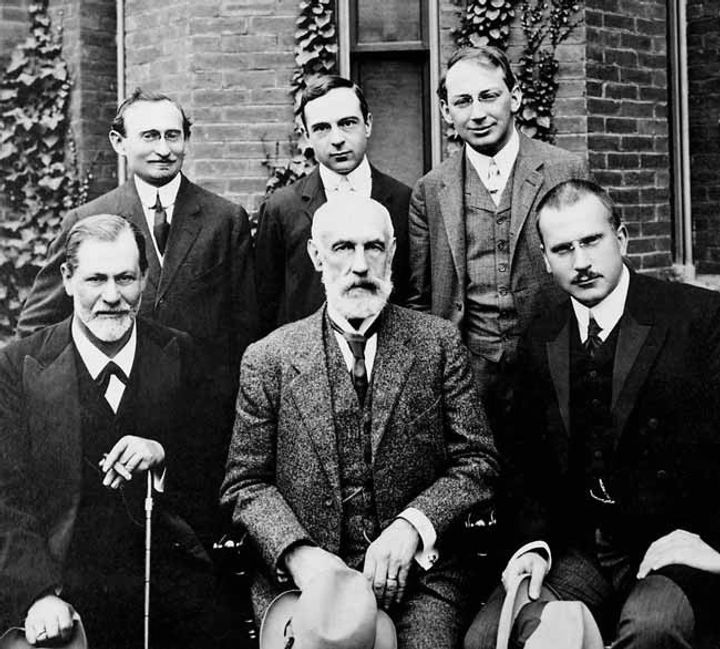Summer 2012
A Sage's Advice
Reviewing "Psychology's Ghosts."
I'm sitting beside a tall stack of books by Jerome Kagan, published by Harvard, Yale, Cambridge, Basic Books. This stack doesn’t include Kagan’s papers (nearly 400), or his textbook Psychology: An Introduction, written with Julius Segal, which has gone through at least nine editions.
A professor emeritus at Harvard, Kagan, now 83, began his career at Yale, where his apprenticeship to behavioral researcher Frank Beach required him to masturbate a group of male dogs over several evenings. Eventually he got a day job, assessing children for a longitudinal study of childhood temperament at the Fels Research Institute. He moved to Harvard in 1964 and continued to study children. His research culminated in The Nature of the Child (1984), a developmental study that emphasized the enduring role of temperament. Kagan went on to codirect Harvard’s Mind/Brain/Behavior Interfaculty Initiative, an interdisciplinary program established in 1993 to investigate relationships between the nervous system, human behavior, and mental life.
The themes of Kagan’s books widened accordingly, to include more philosophical and cultural questions. Indeed, Psychology’s Ghosts revisits ideas Kagan advanced in previous books, namely Three Seductive Ideas (1998), An Argument for Mind (2006), and The Three Cultures (2009)—the title of the latter an allusion to C. P. Snow’s influential lecture cautioning against the growing gulf between the sciences and the humanities. Where in 1959, Snow saw a schism, Kagan now sees a 21st-century Bermuda Triangle: social scientists, lost in the airspace between two great branches of knowledge, unwilling or unable to read the signals from either one.
Psychology’s Ghosts makes important criticisms of the profession: Psychologists should pay more attention to the setting, age, class, and cultural background of their research participants; researchers should look for patterns of measures rather than use single measures; and psychiatrists need to consider life circumstances rather than simply diagnosing patients and prescribing medication on the basis of symptoms. Kagan singles out the infamous Diagnostic and Statistical Manual of Mental Disorders for well-deserved scorn. However, most psychiatrists and psychologists see the DSM as not much more than a tool for billing insurance companies, so Kagan’s low opinion won’t be news to them.
Kagan is also annoyed by recent studies that claim to measure “happiness,” a social construct with dubious cross-cultural applications. Yet in Psychology’s Ghosts he advances as fact his own opinion about what makes people happy, namely, “commitment to a few unquestioned ethical beliefs.” I know some pretty cheerful people whose beliefs you wouldn’t touch with a pitchfork.
Kagan prefaces Psychology’s Ghosts with a promise that he will make some constructive suggestions for change, but in his last chapter he doesn’t do much more than air his complaints on a loftier scale. And a section titled “Promising Reforms” meanders around before briefly alighting on Thomas More, the Old Testament, Chairman Mao, the late psychologist John Bowlby, Hollywood movies, and mathematician John von Neumann. Subheads such as “Look for Patterns” and “The Need for Patience” feel tacked on.
So who are psychology’s ghosts? The spooks pop out only at the curious end of this book, where they encounter “the muse of history, reclining on a cloud … continually altering the scenery and rewriting the script so that new generations speak new lines.” Kagan continues:
The muse smiles as she watches each cohort rage wildly at ghosts, trying to make sense of a script with a permanently unfathomable meaning while insisting that their lines are better than those of their neighbors. Although the initial role assignments were determined by throws of the dice, the muse is willing to give a new role and a revised script to those who pay the proper fee. To a select few, she whispers her secret: “Play your role with passion, even if you suspect that it is expendable, and allow the compassion you had as a child to balance the urge to always maximize the self.”
A man approaching the end of a remarkable social science career wants to speak philosophically? Fair enough, and lay readers will find much to admire in Kagan’s humanist approach. But as the corrective to an entire profession, Psychology’s Ghosts displays a rather insubstantial regard for literary style and scientific particulars. Social scientists may prefer to find their “way back” to Jerome Kagan’s earlier work.
A. J. Loftin is a writer living in Chapel Hill, North Carolina.
Reviewed: Psychology's Ghosts: The Crisis in the Profession and the Way Back by Jerome Kagan, Yale University Press, 392 pp.
Cover photo courtesy of Wikimedia Commons
